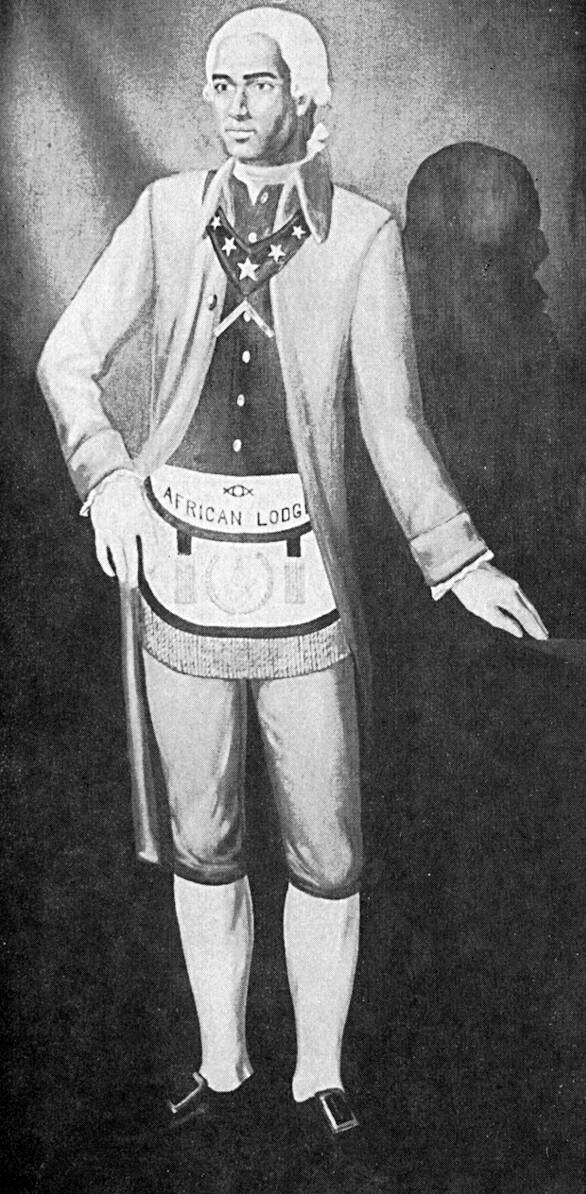Prince Hall was an important social leader in Boston following the Revolutionary War and introduced freemasonry to elite Black society. His birth and childhood are unclear; although, it is assumed that he was enslaved to a Boston leather worker and gained freedom from bondage in 1770. Hall owned a successful leather goods store, as well as his home, and was a taxpayer and a voter. He supplied the Boston Regiment with leather goods and may have fought in the Battle of Bunker Hill.
In 1775, fifteen free Blacks, including Hall, joined a freemason lodge of British soldiers, forming their own lodge, African Lodge #1, after the British defeat. However, they were not granted full stature by the Grand Lodge of England until 1784. The actual charter arrived in 1787, at which time Hall became the Worshipful Master. Even though they had full stature, most white freemason lodges in America did not treat them equally. Hall helped other Black Masonic lodges form. Upon his death in 1807, they became the Prince Hall Grand Lodges. There are 46 lodges across the United States today.
Hall used his leadership position to organize Black activism. In 1787, Hall unsuccessfully petitioned the Massachusetts legislature to send Blacks back to Africa where they could be fully free and also serve as a trading partner. Later that year, Hall’s petition for Black public school funding was denied. But in 1796, Boston approved his request to fund Black schools, but they said they did not have a building, so Hall let the school operate from his home. Hall helped Massachusetts pass legislation outlawing the slave trade and punishing those involved with it (1788). Hall continued to work for abolition, equal rights, and economic advancement in the Black society until his death.

